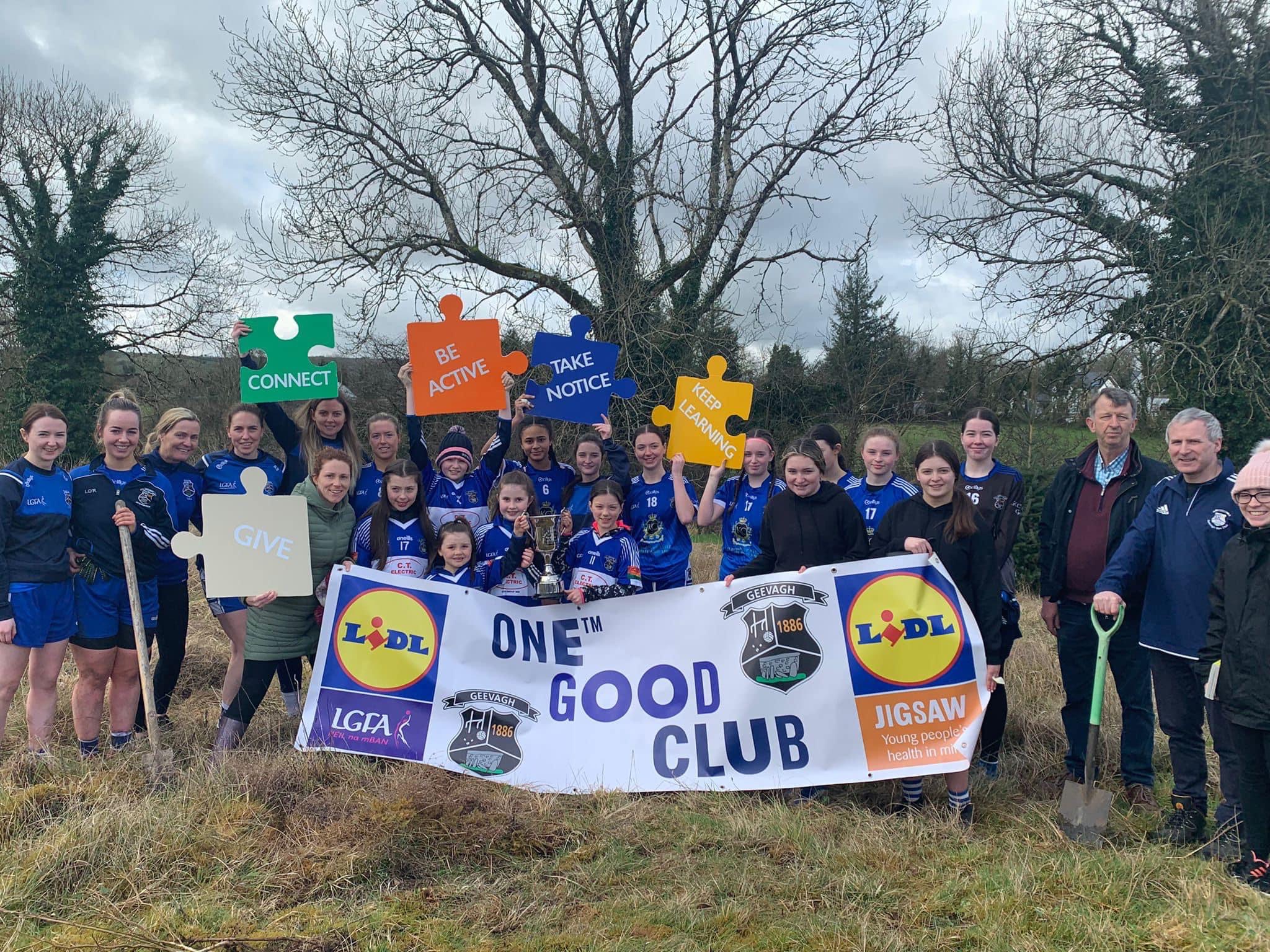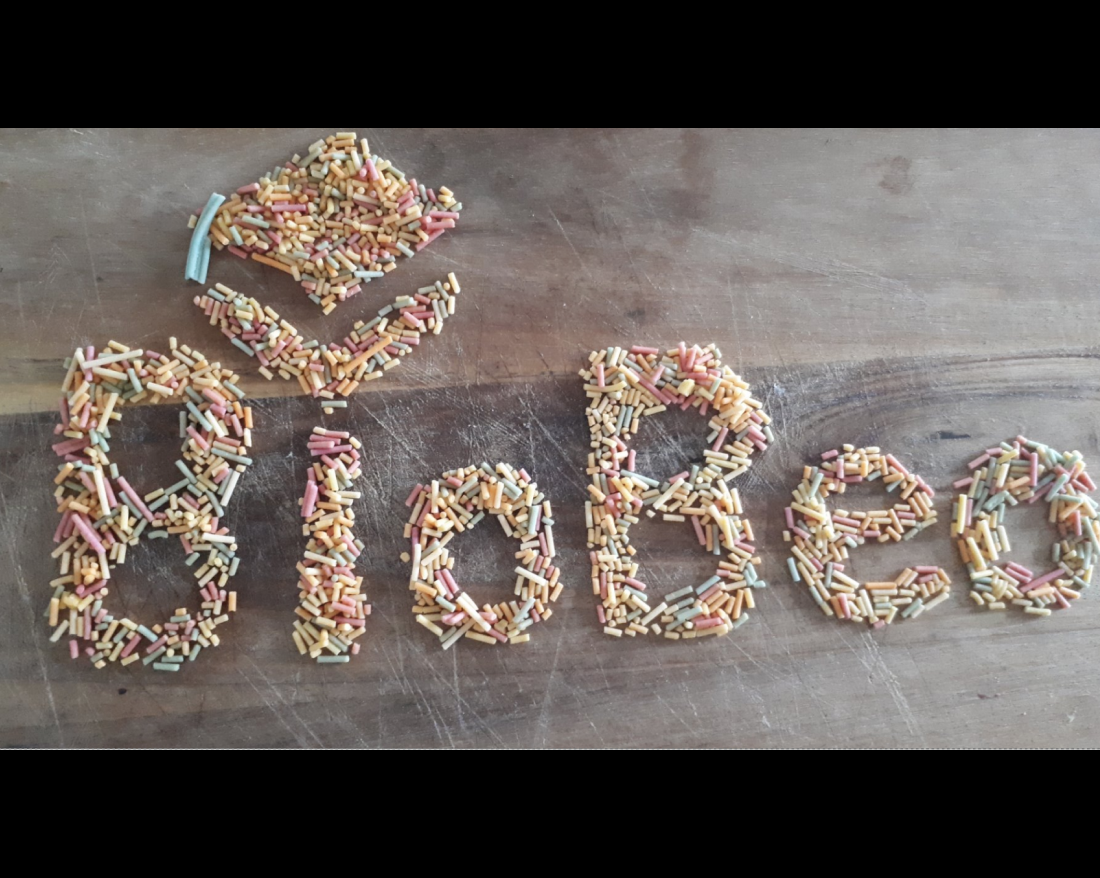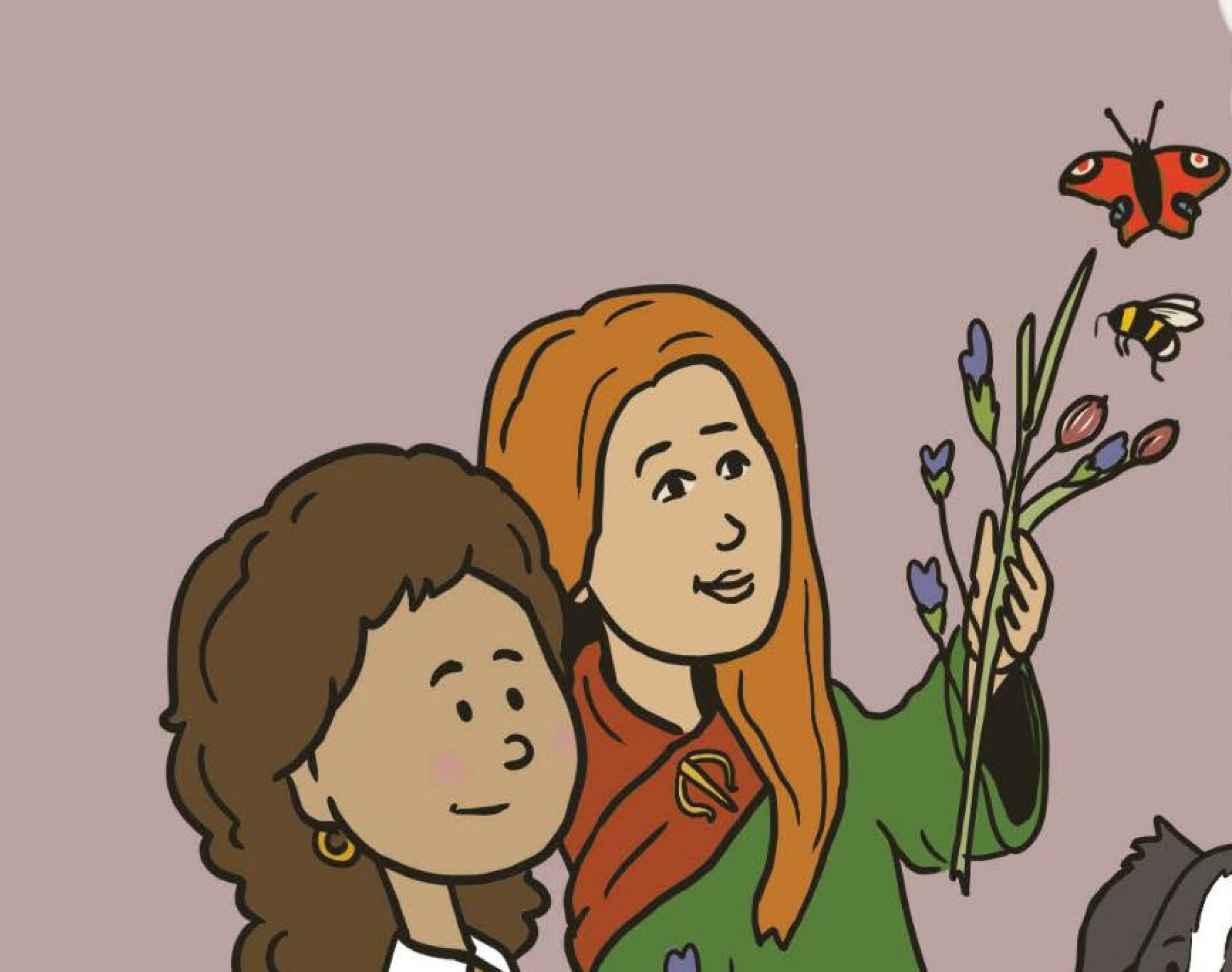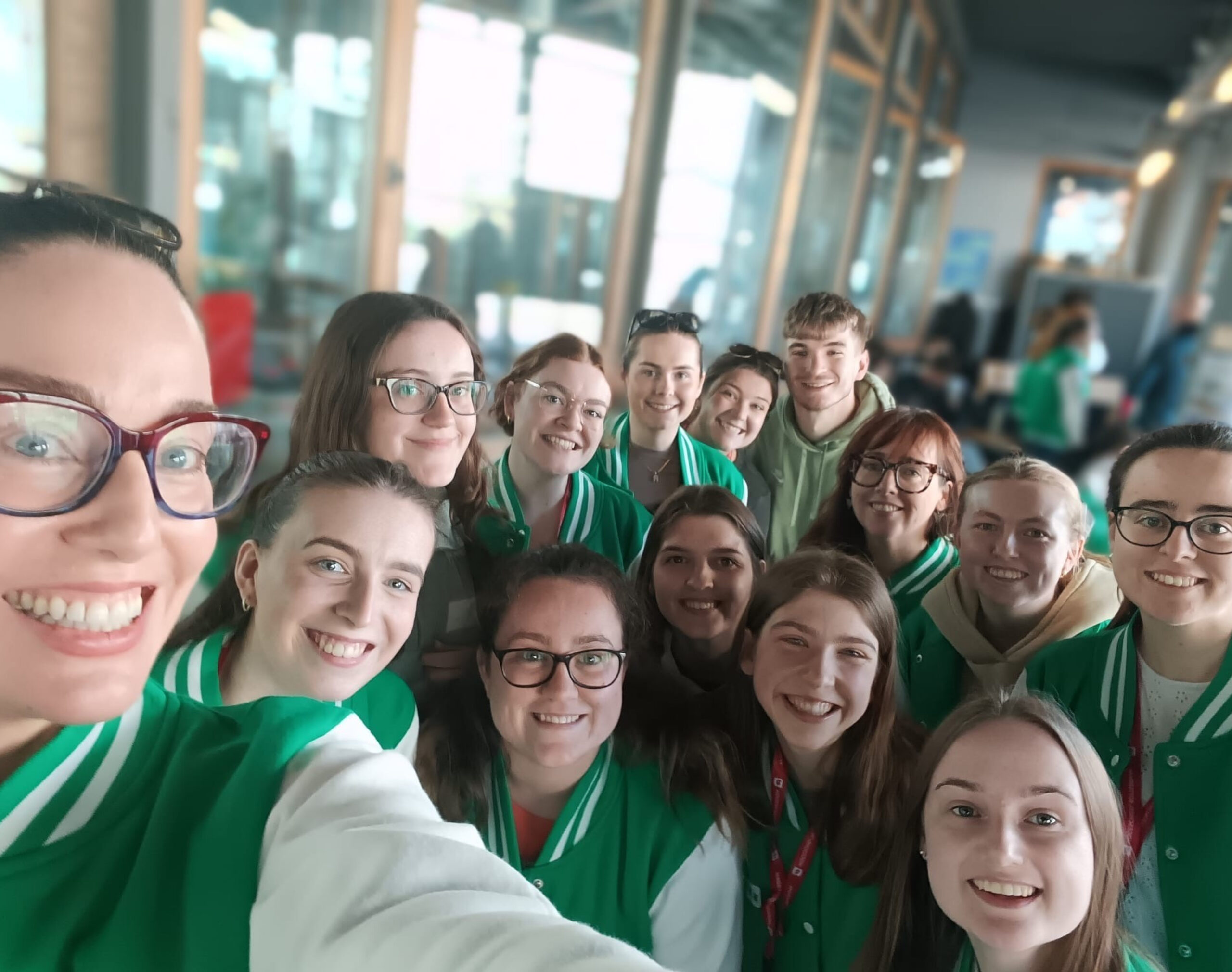
The BioBeo Blended Intensive Programme in Rotterdam
A Blended Intensive Programme for Student Teachers in Rotterdam: A Unified Approach in Bioeconomy and Sustainability Education
In the heart of Rotterdam, a remarkable collaboration unfolded, led by Rotterdam University of Applied Sciences (RUAS) in partnership with Maynooth University (Ireland) and OUAS (Belgium), as part of a Bioeconomy and Sustainability Education (BIP) initiative. The goal was clear yet profound: to foster cross-border partnerships focused on education and sustainable solutions. With critical support from ERASMUS, BioBeo, and BiOrbic, this international programme became a true testament to the power of collaboration in the fields of bioeconomy and sustainability education.
RUAS played a pivotal role in organising and leading the Rotterdam programme, offering a rich and engaging experience that set the stage for continued cooperation and knowledge exchange. By hosting the event, it provided a platform for dynamic discussions on the future of bioeconomy and sustainable development. This was the second of three events constituting a BIP. The first BIP was held last year in Ireland at MU and was launched with an online bespoke bioeconomy education course designed and facilitated by University of Hohenheim, Germany for all participants.
ERASMUS Support: A Cornerstone of Success
The crucial support of ERASMUS, which provided the funding and framework for this international partnership, was essential in making this ambitious programme a reality. ERASMUS has long been a driving force behind educational initiatives that promote intercultural exchange and collaboration, and its involvement was instrumental in the programme’s success. Facilitating the movement of students and staff across borders, ERASMUS enabled programmes like BIP to foster deeper global connections, enrich the educational experience for all involved.
Immersive Learning Experiences
The trip to Rotterdam was nothing short of inspiring. Participants had the opportunity to engage in hands-on learning at some of the city’s most innovative sustainability projects. A highlight was Blue City, a former tropical aquatic park, transformed into a circular economy hub, where students learned firsthand about waste reduction, local deliverance and resource reuse, illustrating the potential for cities and communities to become sustainable ecosystems. The Floating Farm experience, a unique urban farming concept, further underscored the growing role of urban agriculture in ensuring food security while minimising environmental impact.
These immersive experiences were not just about observing innovation in action. They provided invaluable insights into how bioeconomy principles can be integrated into both urban and rural development, sparking lively discussions among students, faculty, and facilitators about the real-world applications of the circular bioeconomy model. These insights can offer real solutions to some of the planet’s most pressing issues.
Engaging with Expert Facilitators
A key feature of the programme was the involvement of renowned guest facilitators, who brought their expertise to guide participants through complex sustainability topics. Their expertise enriched the learning experience, providing actionable knowledge that students could carry forward into their future careers. Among the speakers were Kees Klomp, Evelyn Reinmuth, Judit Horgas, and Linda Buijsman. Much of the contributions were of inestimable value in shaping the conversations about bioeconomy, sustainability and innovation.
The collaborative nature of these sessions fostered a dynamic learning environment where participants could exchange ideas, challenge assumptions, and gain a more comprehensive understanding of bioeconomy. Standout workshops were the Biomimicry workshop and the Comic Strip Workshop, which allowed students to translate complex sustainability issues into visual solutions. This hands-on activity encouraged creativity while helping participants better understand the challenges and potential solutions in the world of bioeconomy and sustainability education. The activities highlighted the importance of storytelling in education, particularly in the context of sustainability. Addressing global challenges like climate change, resource depletion, and biodiversity loss requires clear communication and the ability to engage diverse audiences to explore possible solutions such as a bioeconomy.
Interactive Workshops and Assignments
In addition to the lectures and discussions, participants took part in a variety of engaging workshops and activities. The Biomimicry Workshop inspired students to look to nature’s designs for sustainable solutions, while the Crazy88 Challenge fostered teamwork and out-of-the-box thinking on sustainability issues. The Blue City Circular Assignment provided an opportunity for students to work on real-world circular economy projects, solidifying the connection between theoretical learning and practical application.
The programme concluded with a United Nations World Climate Simulation, an immersive experience that allowed participants to step into the roles of global leaders and negotiators. This simulation highlighted the urgency of climate action and gave participants a deeper understanding of the complexities of international climate negotiations.
Continued Collaboration and Legacy
The BIP in Rotterdam was a resounding success, and it marks another chapter in an ongoing story of collaboration, innovation, and education. It demonstrated the strength of the partnerships formed, particularly through the ongoing collaboration between RUAS, MU, OUAS, UH, BioBeo, and BiOrbic. This partnership, now part of the BEST network, continues to thrive, ensuring that the exchange of ideas, research, and best practices will benefit all involved. The knowledge and experiences gained from the programme will continue to shape the next generation of sustainability leaders, equipping them with the tools to drive meaningful change in their communities and beyond.
This recent programme marks another chapter in RUAS’s commitment to excellence in sustainability education. As the BioBeo and BiOrbic partners continue their work, RUAS, OUAS, UH and MU will undoubtedly remain at the forefront, shaping the future of bioeconomy education and driving sustainability initiatives that have a lasting impact on the planet, but most importantly together. This project has not only strengthened the bonds between the partner institutions but has also demonstrated the power of education to drive meaningful change in the world.
In conclusion, the success of the Rotterdam BIP is a powerful reminder of the potential for international collaboration to address global challenges. By working together, we can build a more sustainable, equitable future for all.
Find a comprehensive guide on the Blended Intensive Programme in Rotterdam here.
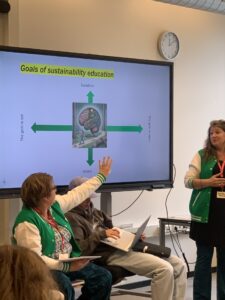
A vigorous discussion with on the goals of sustainability education!
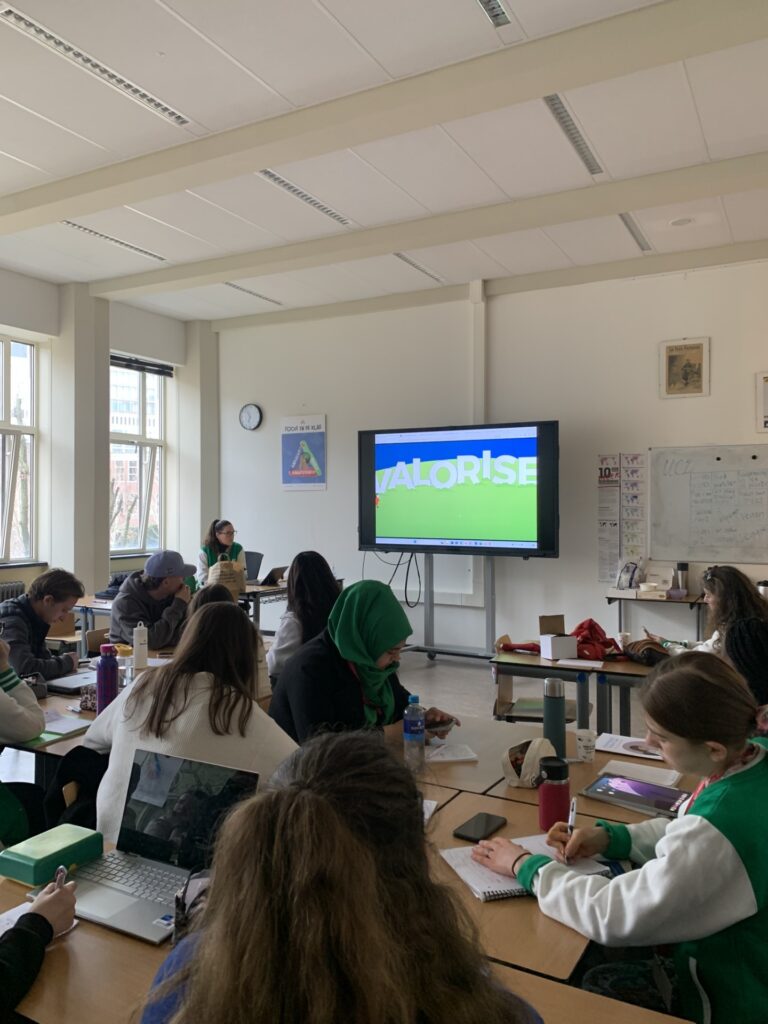
Sharing a catchy animation and song originally from the Horizon 2020 AgroCycle Project which laid the foundation for the Horizon BioBeo Project. Disseminating European level research at all levels!
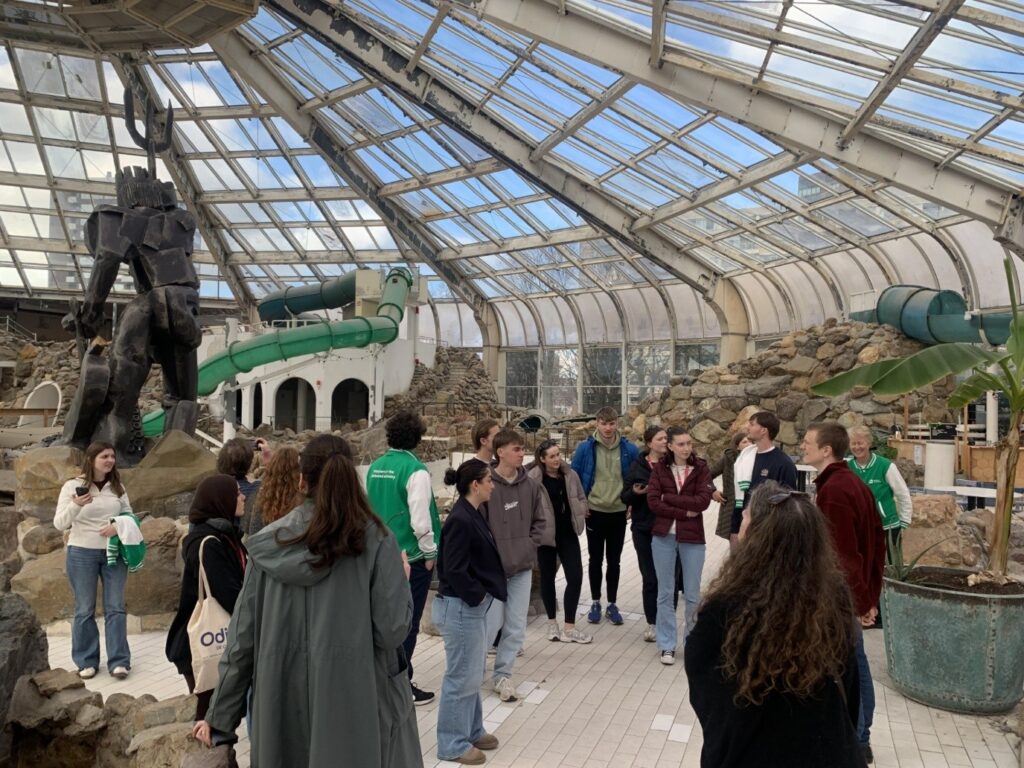
A fascinating visit to the ‘Blue City’ circular economy hub where we learned all about the creative endeavours of established circular bioeconomy companies and others in development.
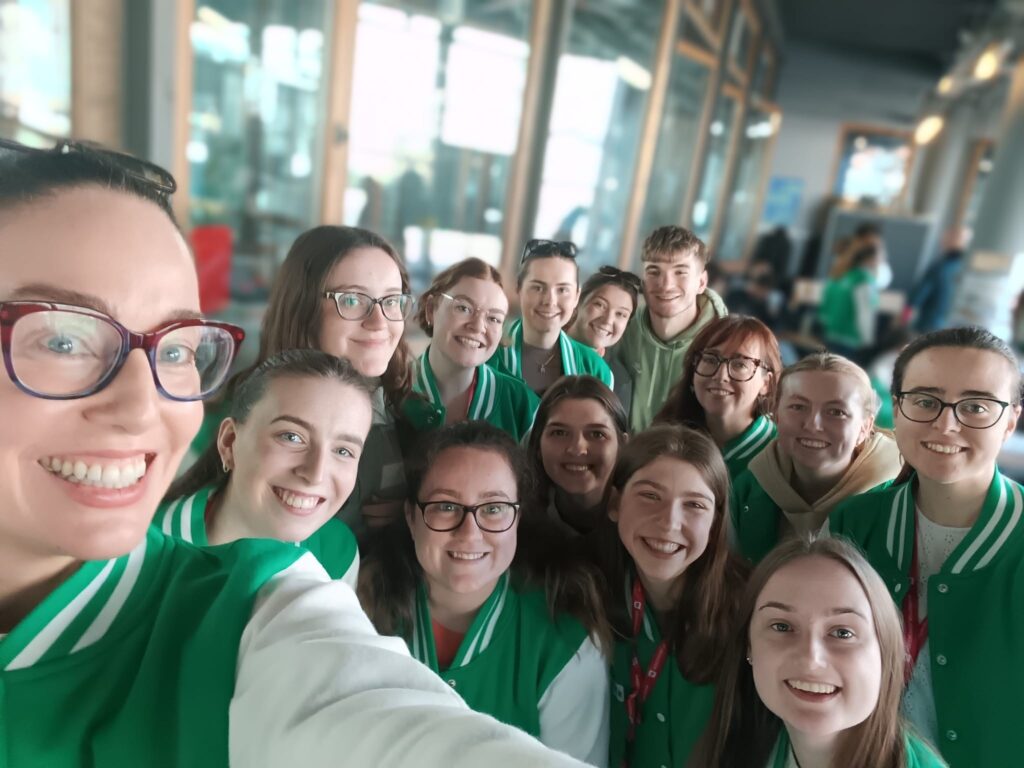
Some of the students eager to learn more about bioeconomy and what we can do as educators for a better world!

